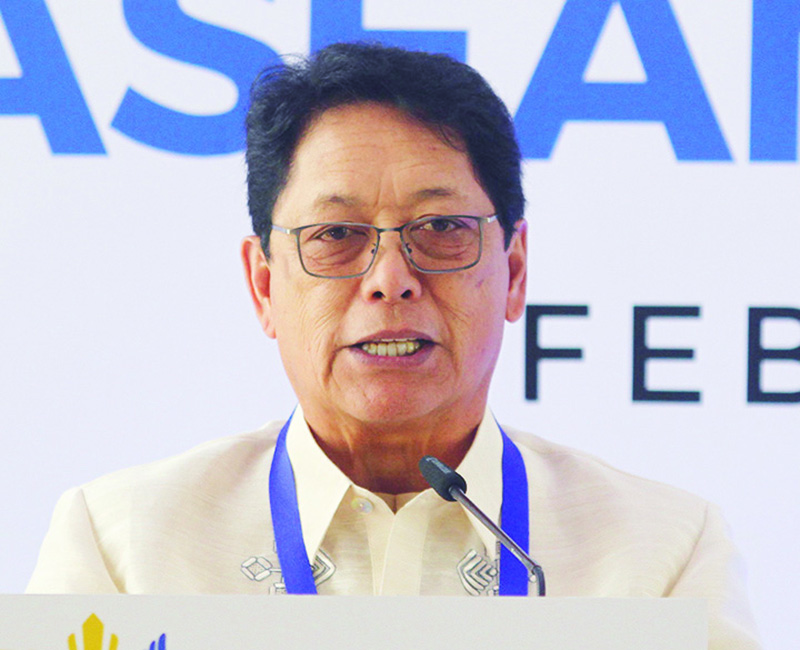By Ben Garcia and Agencies

KUWAIT: Filipino expats living and working in Kuwait want the partial ban on Pinoy domestic helpers to be in force for a longer period, according to a survey by Kuwait Times. "Since I started working here in Kuwait in 2007, I have heard so many stories about them. This is enough! It's too rampant - these are no longer isolated cases, and the government of the Philippines must work on the ban to be implemented for a longer period.
Shame on us that we cannot prevent these abuses from happening. They think we are mere objects subject to any form of abuse by anyone who wants to harm us. We are human beings - if they have feelings, we have them too," said an overseas Filipino worker (OFW) in response to the survey via Facebook.
"Be firm once and for all. We want this partial ban on domestic helpers to be implemented a bit longer, just like the ban imposed by Indonesia. If they can, why can't we?" demanded another 40-year-old Filipino working in Kuwait. All names have been withheld to protect respondents who might face a backlash from their employers in Kuwait.
Last Friday, Philippine Labor Secretary Silvestre Bello III said the government might declare a total ban on the deployment of OFWs to Kuwait in the wake of a "questionable" autopsy report released by the Kuwaiti government on the death late last month of domestic helper Jeanelyn Villavende. Bello deplored the results of the initial autopsy in Kuwait, noting that it highly contradicted the autopsy conducted by the Philippine National Bureau of Investigation (NBI) at a funeral parlor in Purok Guimbal, Barangay Tinago, the native place of Villavende.
Bello did not disclose the details of the re-autopsy pending the release of the official report, but when pressed by reporters for details, he said they "did wicked things to the victim and oppressed her too much". The autopsy report earlier released by Kuwaiti authorities said the 26-year-old Villavende died of acute heart and respiratory failure as a result of shock and multiple injuries to the vascular system. Villavende was brought dead to a hospital in Kuwait on Dec 28 after reportedly being beaten by her female employer. Her family was informed of her death on Dec 30.
Bello, who last week declared a partial ban on the deployment of OFWs to Kuwait, said he doubted the "one-sentence" autopsy findings released by the Kuwaiti authorities, as the cause of the victim's death was unclear. He said he immediately requested the NBI to conduct a re-autopsy on Villavende after the repatriation of her remains. Once he receives the official report on the NBI's re-autopsy, Bello said he will convene the governing board of the Philippine Overseas Employment Administration and may recommend a total deployment ban on OFWs to Kuwait. "That will not be lifted until we get proper justice (for Villavende)," Bello said.
As to the suspects in the killing, he said the Kuwaiti couple that had employed the victim has been detained, as confirmed by the labor attache of the Philippine Embassy in Kuwait. He said Kuwaiti Ambassador to Manila Musaed Saleh Ahmad Al-Thuwaikh informed him in a meeting last week that the suspects have been charged. But Bello noted that Thuwaikh has failed on his promise to deliver a copy of the charge sheet last Monday.
Abuse of domestic helpers in the Gulf region including Kuwait is all too common. In Feb 2018, the Philippine government also briefly declared a total ban on all Filipino workers bound to Kuwait after the body of Joanna Demafelis, a 29-year old Filipino maid, was found in the freezer of her employers' house in Hawally. The ban was only lifted after the two countries finally agreed to sign bilateral agreements on domestic help concerns.
A further, albeit temporary diplomatic standoff occurred when Kuwait discovered that Philippine embassy personnel were helping housemaids escape from their sponsors. Then Philippine Ambassador to Kuwait Renato Villa was declared persona non grata and was asked to leave Kuwait. Till now, no new ambassador has been appointed and Charge d'affaires Noordin Pendosina Lomondot has not yet received confirmation in the Philippine Senate.
"If I were the decision maker, I want a total ban and make it sure it will be implemented. Hopefully, this government will learn a lesson from the past. I don't want to hear today about the ban and then tomorrow it's over," said Marissa, who hails from Davao, the native place of President Rodrigo Duterte.
Another Filipino working in Kuwait noted she would like to see a total ban on domestic helpers, but not for skilled and unskilled laborers. "Things will never be okay for those working in private homes. If our government tolerates this again, I'm sure a lot of Filipinas will be killed and mistreated once again, so for me, enough is enough," she said.
Other respondents said that in order to fully implement the ban, the Philippine government must create better working conditions for its workers and more jobs for people in the provinces, so they are not lured by high-paying jobs abroad. There are more than 250,000 Filipinos in Kuwait, the Philippine foreign ministry estimates, with 65 percent working as domestic helpers.
The killing of Villavende is the latest in a series of abuses faced by Filipino workers in the Middle East, the main destination for about 3,000 Filipinos who leave the country daily on temporary foreign work permits. The women tend to work as domestic workers while men are mostly employed in construction and other sectors. Around 10 million Filipinos are migrant workers overseas and their remittances account for more than 10 percent of the country's GDP.




